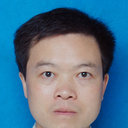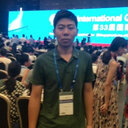2,3,5,4‑tetrahydroxy diphenylethylene‑2‑O‑glucoside inhibits the adhesion and invasion of A549 human lung cancer cells.
키워드
요약
Lung cancer is considered to be a serious disease that poses a significant threat to human health. 2,3,5,4‑tetrahydroxy diphenylethylene‑2‑O‑glucoside (THSG) is a bioactive compound derived from Polygonum multiflorum Thunb. That has been demonstrated to possess antioxidative, anti‑inflammatory and antitumor activities. However, little is currently known regarding the potential anticancer effects of this compound in lung cancer. Therefore, the present study aimed to investigate the effects of THSG on the adhesion and invasion of A549 human lung cancer cells in vitro, and to identify the putative mechanisms involved. Cell Counting kit‑8 assay was performed to determine A549 cell viability following treatment with various doses (0, 5, 10, 25, 50, 100, 150 and 200 µM) of THSG for 12, 24 and 48 h. In addition, cell adhesion and invasion were determined following treatment of A549 cells with 0, 10, 25 or 50 µM THSG for 1, 2 or 3 h, respectively. Reverse transcription‑quantitative polymerase chain reaction analysis was performed to examine the mRNA expression levels of Snail, E‑cadherin, vimentin, matrix metalloproteinase (MMP) 2 and MMP9 following THSG treatment for 12 h. Western blot analysis was conducted to detect the protein expression levels of Snail, E‑cadherin, vimentin, MMP2 and MMP9 following THSG treatment for 24 h. Treatment with THSG (10, 25 and 50 µM) significantly suppressed the adhesion and invasion of A549 human lung cancer cells in a dose‑dependent manner. In addition, the mRNA and protein expression levels of adhesion and invasion‑associated factors were decreased significantly in A549 cells treated with THSG. In conclusion, THSG effectively suppressed the adhesion and invasion of human lung cancer cells potentially by inhibiting the expression of adhesion and invasion‑related genes.




